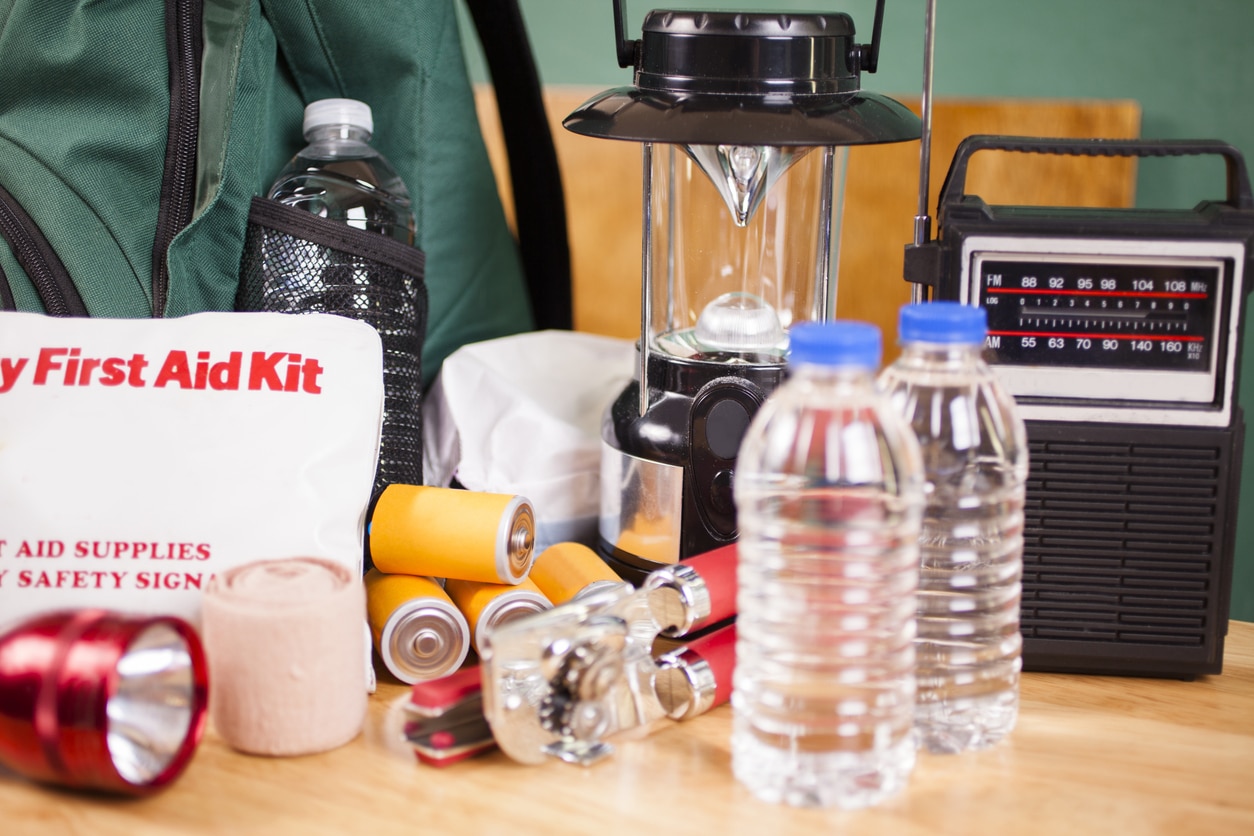Emergencies happen, and you can’t always see them coming, but you can prepare for them. Approximately 15% of U.S. adults report some trouble hearing. Emergency preparedness for those with hearing loss comes with a couple of extra steps.
Let’s look at a few emergency preparedness tips for those with hearing loss.
Store Extra Batteries

Every home should have an emergency preparedness kit completed with first aid supplies and access to food and water. People with hearing loss should also include extra hearing aid batteries in their kit, preferably in a waterproof case.
If you use hearing aids with rechargeable batteries, keep an extra charger and emergency battery in your kit.
During an emergency, hearing first responders, alarms, family members and more can make a huge difference in your safety. Ensuring that your hearing aids can help you understand safety information is a significant first step in emergency preparedness.
Install Visual Alarms
Many alarms rely entirely on sound to alert you to fire, burglary and more. If you are not wearing your hearing aids, visual alarms that flash a light can alert you to an emergency.
Use a Warning Light
A flashing warning light or beacon will alert first responders to your location. Warning lights are especially helpful for those with pronounced hearing loss who may not hear others calling to them during an emergency.
Pack Identification
Make copies of your birth certificate, driver’s license or other forms of identification and place them in a sealed envelope or lanyard in your emergency kit.
If your hearing loss is pronounced, consider making signs identifying yourself as deaf or hard of hearing with specific instructions for your needs to help ease communication in the event of a disaster.
Put Hearing Aids in a Case
Emergencies can occur at any time with very little notice. Storing your hearing aids in a waterproof case in a designated place will help ensure their safety and prevent them from being lost during an emergency.
Learn the Basics
After grabbing an emergency preparedness kit from the Augusta Red Cross and outfitting it with hearing loss essentials, consider taking some safety courses. Learning the basics of CPR, first aid and more can help you stay on top of your emergency preparedness game.
For more information on caring for your hearing loss, contact Augusta – Aiken ENT & Allergy today to make an appointment with one of our specialists.